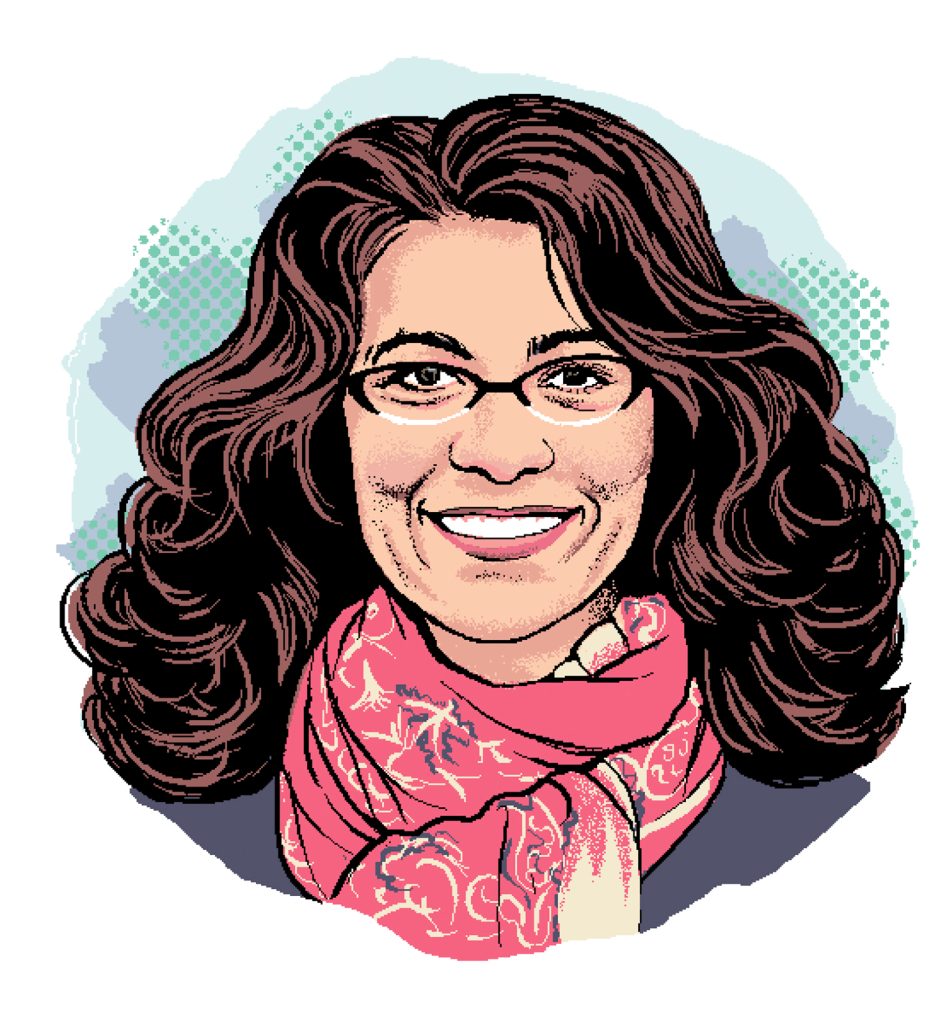Nikki Mirghafori describes herself as an accidental Buddhist. Her path led from a childhood in Tehran, Iran, to sitting silent retreats in the Theravada tradition in her thirties in the United States. Early on, she remembers asking herself the big life questions: Why am I here? What is the point? What is this? She read the poetry of Rumi and Hafez in Farsi as a teen, sensing in their words a knowledge that, as she put it, ignited her heart’s desire to know and understand, to put out the fire of her “existential angst.”
In her twenties, while in graduate school at Berkeley for her doctorate in computer science, she took up guided imagery and breath meditation to accompany and support a loved one facing cancer. These practices would be helpful precursors to the formal training she’d take up later on. A few years later, Mirghafori was struck by a mysterious illness that left her utterly depleted. Desperate for relief, she followed a friend’s suggestion to sit a silent retreat, and after attending a couple of Insight Meditation workshops, she attended her first 10-day retreat with Jack Kornfield in Yucca Valley. “It was profound,” she said, “as if a door had been opened to a universe in my mind I didn’t know existed. I was completely hooked.”
Over time, Mirghafori’s dedication to the dharma deepened and she studied with various teachers. But as an Artificial Intelligence scientist, she never intended to teach the dharma. Yet it seems that life had other plans for Mirghafori, because in 2008, after she had studied the jhanas (stages of deepening concentration) and a detailed analytical method of vipassana with the living master Venerable Pa Auk Sayadaw, he empowered her and instructed her to teach. “Studying with Pa Auk Sayadaw changed my life,” she said. “The fire of existential angst was extinguished at last.” She didn’t tell anyone about her teacher authorization for years, though. Wanting to study and practice with a dedicated cohort, she joined a mindfulness training program at UCLA and a compassion cultivation training program at Stanford. Then, in 2012, Jack Kornfield invited her to join the four-year teacher training at Spirit Rock/Insight Meditation Society/Insight Meditation Center, and in 2016 she again received empowerment in the Theravada lineage. Currently she serves on the Teachers Council at the Spirit Rock Meditation Center in Woodacre, California, and as a teacher at the IMC in Redwood City, California. She also serves on the board of directors at Spirit Rock.
As Mirghafori explains, her professional training as an AI scientist has melded well with her dharma teaching, giving her, among other skills, empirical understanding of the doctrine of not-self, an extension of emptiness. “What appears as an intelligent self is made up of levers of causes and conditions—biological, psychological, cultural, and so on—akin to lines of code; which doesn’t make us and the world any less amazing,” she added. “It’s still wondrous and sacred.”
When I asked Mirghafori what she thought was the most urgent teaching we modern practitioners have to learn, she answered without hesitation. “Learning to love. It may sound trite: ‘Love is the answer.’ But so many of the problems we’re having in our world—they’re because we don’t love enough. We don’t love the earth. We don’t love each other. We don’t love ourselves. We don’t love challenges. We don’t love what is. We don’t love the mystery. So yes, learning to love is most urgent.”
♦
Visit nikkimirghafori.com for more information on Mirghafori’s teaching.
Thank you for subscribing to Tricycle! As a nonprofit, we depend on readers like you to keep Buddhist teachings and practices widely available.
